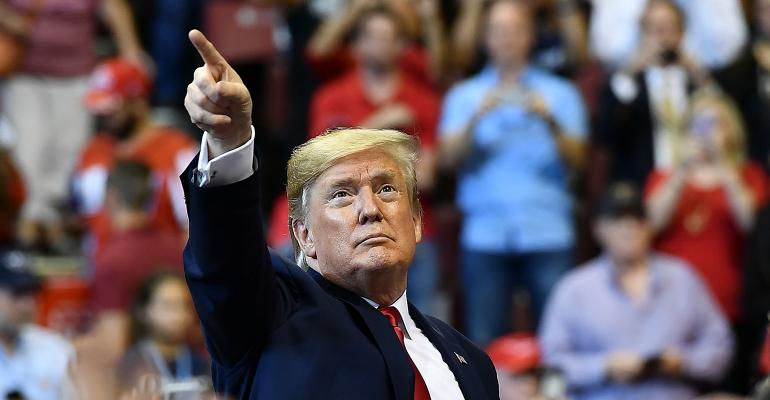The 2020 election is rapidly approaching (just in case any of our readers have been living under a rock or in some sort of doomsday preppers bunker for the past several months), and that means it’s time for the quadrennial tradition of the country at large pretending to care about the estate tax.
Forgotten by most everyone, except those in the wealth management industry and the very wealthy, the estate tax traditionally takes an odd position of prominence in the national consciousness the moment that campaign season begins. And here we go again. On Monday, the Trump administration released a proposed budget for fiscal year 2021 that anticipates a $1.1 trillion dollar budget deficit in 2020 and outlines a plan to balance the budget by 2035.
One of the major assumptions of that plan is that many of the provisions put in place by 2017’s Tax Cuts and Jobs Act—set to expire in 2025—will remain in place beyond that point. The estate and gift taxes are among those specifically called out in the budget analysis:
“The 2021 budget supports the extension of the individual and estate tax provisions of the Tax Cuts and Jobs Act beyond their expiration in 2025 … to provide certainty for taxpayers and to support continued economic growth.”
For those who’ve forgotten, the TCAJ effectively eliminated the estate tax for the vast majority of Americans, raising the individual estate and gift tax exemptions north of $11 million—with portability—which in layman’s terms means that a married couple is effectively exempt from estate and gift taxes for their first $22 million. And that's with basically no planning whatsoever.
Even at its previous level of $5.4 million (with portability), less than 1% of Americans filed estate tax returns. Yet politically, it represents a no harm/no foul cause for both sides, since it produces so little revenue and affects so few people. For Republicans, it's an easy target to point to and say "look, we cut taxes," all while sneaking in a benefit for the wealthy members of their base. While for Democrats, it's an easy target to increase, since it affects only the wealthy, and can be held out as a prospective way to help fund all manner of government programs, despite the fact that it doesn't really produce much revenue.
And, ultimately, that's what we have here. With a Democrat-controlled house, this budget has exactly zero chance of passing intact, so what it really represents is more campaign fodder—the role the estate and gift taxes are destined to play it seems.





